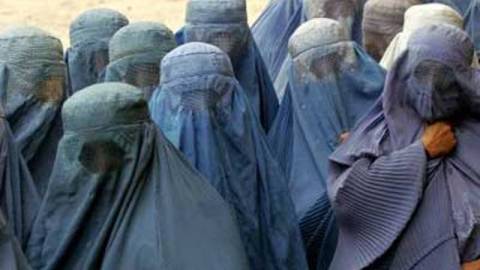On Banning the Burqa

IT is ten days since French MPs voted to ban the Burqa, on the grounds that the garment “is an insult to the country’s values”. Yesterday two women wearing a “Burquina” – an all in one bikini that covers the whole body, were ordered from a swimming pool in the South of France, although the fact that their respective husbands became vexed when their wives were asked to change into something else, probably contributed to the order for the women to leave.
The new law will probably take effect from next spring when the Senate votes for a total ban. Infringing the ban could lead to fines and ultimately imprisonment. It follows from a Swiss referendum that called for the ban on the building of all Minarets, a call to ban the Burqa in Spain and widespread support for a ban in the Netherlands, a country once a byword for liberalism. Predictably the more raucous elements of the UK tabloid newspapers have been calling for a similar ban for some time. And the Burqa is seemingly surrounded by a an informal coalition of left feminists who think the garment is degrading, secularists and Right wing fundamentalists and those who suffer from a condition known as ‘Islamophobia’.
However before France is arraigned in the dock and accused of intolerance, it should be pointed out that the country is essentially a secularist construct, albeit one that encourages freedom of worship. In France there is also a ban on the Jewish skull cap. So Muslims shouldn’t imagine that they are necessarily being discriminated upon, at least those Muslims who favour wearing the Burqa.
But that French decision does take place against a backdrop of growing Islamophobia across Europe, and there is little point in pretending otherwise. Media imagery of Muslims is rarely positive, and there is a widespread if misplaced belief that many Muslims support terrorism. The Western supported wars in Iraq and Afghanistan, along with a perceived duplicity over Israel/Palestine has probably succeeded in radicalising a generation of young Muslims, and if it hasn’t managed that has certainly over turned another stereotype, that of the largely compliant, deferential Muslim immigrant.
Some of those who support a ban not only complain that it makes women into second class citizens and chattels of their husbands, they also point out that a Western woman walking the streets of Riyadh or Teheran, head uncovered, could also be arrested for “insulting the country’s values”. The immortal line remains for them, “when in Rome, do as the Romans”.
British Government Ministers when asked if there will ever be a Burqa ban here will reply that “banning things is not very British”, a view with which I wholly concur. And nor do I think that a ban is likely to happen. Do I like Burqas? Not particularly. Do they degrade women? Well possibly yes, but on the other hand some Muslim women claim that the Burqa offers protection from priapic Males. Am I in favour of a British ban? Definitely not.
Once the thought police can tell people what they can and cannot wear, we might as well give up and accept that George Orwell was right in his seminal “1984”. And how long would it be before we were all told what we COULD wear? Like blue boiler suits in perpetuity…




